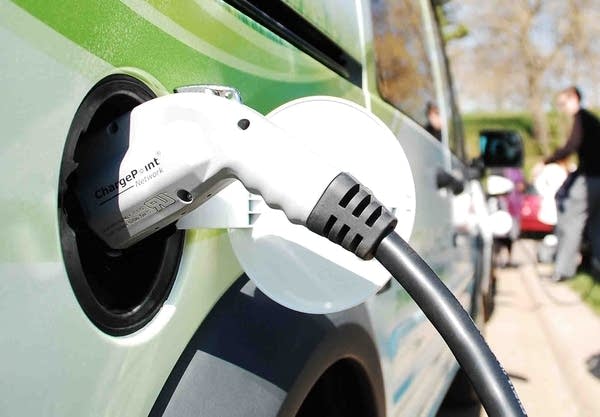Minnesota moves ahead with 'clean car' rules

An electric vehicle is being charged at a solar-powered charging station in 2012 in Como Park. The Minnesota Pollution Control Agency plans to publish a draft rule on Monday requiring carmakers to make more zero-emissions vehicles available for sale in the state.
Tim Post | MPR News 2012
Go Deeper.
Create an account or log in to save stories.
Like this?
Thanks for liking this story! We have added it to a list of your favorite stories.


